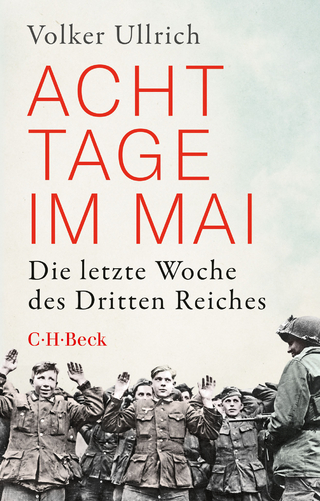
The Psycho Boys
How a Unit of Refugees, Artists, and Professors Fought Back against the Third Reich
Seiten
2023
Stackpole Books (Verlag)
978-0-8117-7362-1 (ISBN)
Stackpole Books (Verlag)
978-0-8117-7362-1 (ISBN)
They were not your typical World War II soldiers. Most were not in particularly good physical shape, and many had trouble handling their weapons. They differed widely in their ages, politics, and skills. Many worked in academia, media, and the arts. They were a strange mix of Americans and foreign nationals, immigrants, and refugees, linked by their language skills, knowledge of Europe, and a desire to defeat the Axis. During the war, the U.S. Army trained them in psychological warfare at a secret camp on the Gettysburg battlefield and then sent them to Europe. They became known as “Psycho Boys,” a group of soldiers who have never received their due respect. In this book Beverly Driver Eddy, author of Ritchie Boy Secrets, tells their rarely heard story and argues for their importance to the Allied war effort.
At Gettysburg the Psycho Boys were taught the various skills that would be necessary in the European campaign from D-Day onward: prisoner and civilian interrogation, broadcasting, loudspeaker appeals, leaflet and newspaper production, and technical support. The 800 men were divided into four mobile radio broadcasting companies and sent to Europe to land on D-Day, fight in Normandy and at the Bulge, and participate in the conquest of Germany and the liberation of the concentration camps. Some of the soldiers operated well out in front of Allied lines and – in German – called on enemy soldiers to surrender. Others worked behind the lines, printing propaganda leaflets and making radio broadcasts.
Drawing on company histories, memoirs, and interviews, this book traces the history of the 2nd, 3rd, 4th, and 5th Mobile Radio Broadcasting Companies and the men who served. For far too long, these soldiers were maligned as mere “paragraph troopers” who weren’t in the line of fire. As Eddy shows, the Psycho Boys made important contributions to victory in World War II by encouraging enemy soldiers to desert or surrender and in other indirect ways. Their story is interesting, important, and vital.
At Gettysburg the Psycho Boys were taught the various skills that would be necessary in the European campaign from D-Day onward: prisoner and civilian interrogation, broadcasting, loudspeaker appeals, leaflet and newspaper production, and technical support. The 800 men were divided into four mobile radio broadcasting companies and sent to Europe to land on D-Day, fight in Normandy and at the Bulge, and participate in the conquest of Germany and the liberation of the concentration camps. Some of the soldiers operated well out in front of Allied lines and – in German – called on enemy soldiers to surrender. Others worked behind the lines, printing propaganda leaflets and making radio broadcasts.
Drawing on company histories, memoirs, and interviews, this book traces the history of the 2nd, 3rd, 4th, and 5th Mobile Radio Broadcasting Companies and the men who served. For far too long, these soldiers were maligned as mere “paragraph troopers” who weren’t in the line of fire. As Eddy shows, the Psycho Boys made important contributions to victory in World War II by encouraging enemy soldiers to desert or surrender and in other indirect ways. Their story is interesting, important, and vital.
Beverley Driver Eddy is professor emerita of German studies at Dickinson College, with seven books to her credit, including Ritchie Boy Secrets (Stackpole, 2021). She has spoken widely on this topic, including at the U.S. Army Heritage & Education Center, and has appeared on C-SPAN’s BookTV podcast. Eddy lives in Chambersburg, Pennsylvania.
| Erscheinungsdatum | 19.09.2023 |
|---|---|
| Zusatzinfo | 36 BW Photos |
| Verlagsort | Mechanicsburg, Pennsylvania |
| Sprache | englisch |
| Maße | 160 x 236 mm |
| Gewicht | 435 g |
| Themenwelt | Geschichte ► Allgemeine Geschichte ► 1918 bis 1945 |
| Geschichte ► Teilgebiete der Geschichte ► Militärgeschichte | |
| ISBN-10 | 0-8117-7362-0 / 0811773620 |
| ISBN-13 | 978-0-8117-7362-1 / 9780811773621 |
| Zustand | Neuware |
| Haben Sie eine Frage zum Produkt? |
Mehr entdecken
aus dem Bereich
aus dem Bereich
ein Psychologe erlebt das Konzentrationslager
Buch | Hardcover (2024)
Kösel (Verlag)
22,00 €
Mythos „Stauffenberg-Attentat“ – wie der 20. Juli 1944 verklärt und …
Buch | Hardcover (2024)
Goldmann (Verlag)
24,00 €
die letzte Woche des Dritten Reiches
Buch | Softcover (2023)
C.H.Beck (Verlag)
16,00 €


